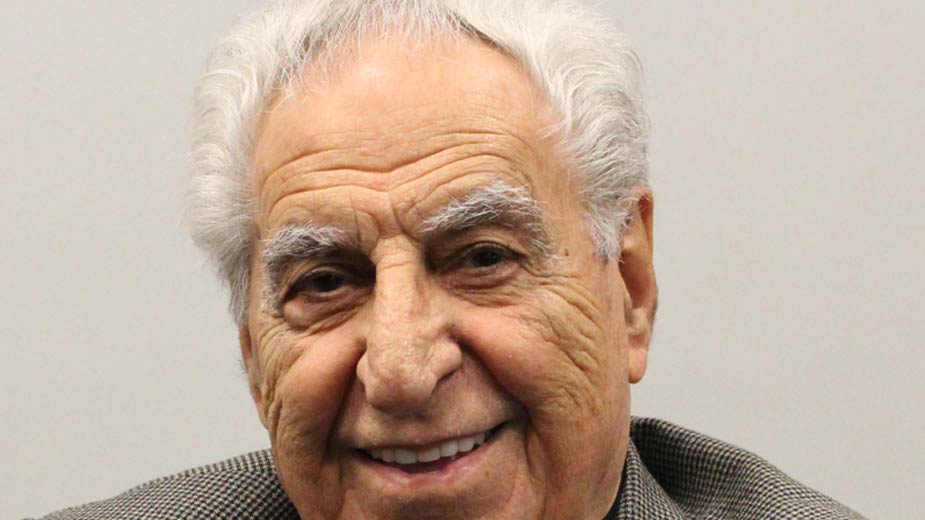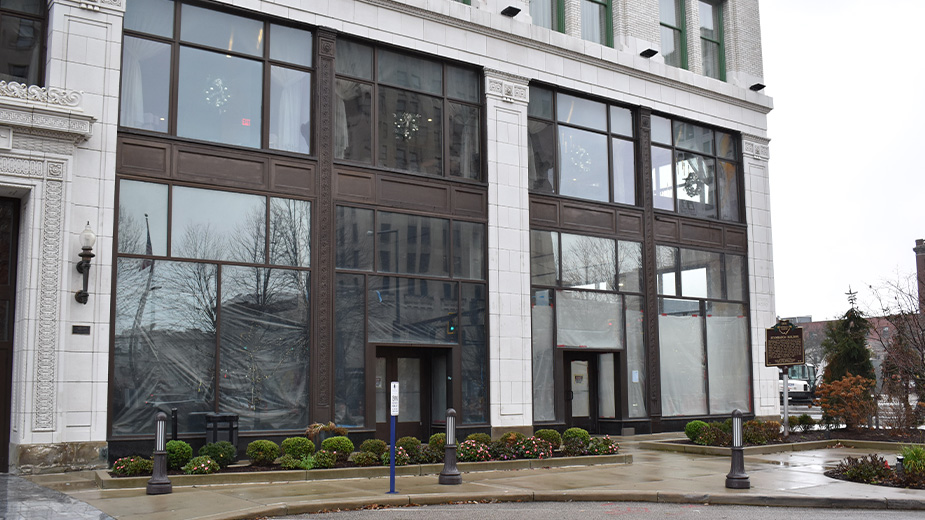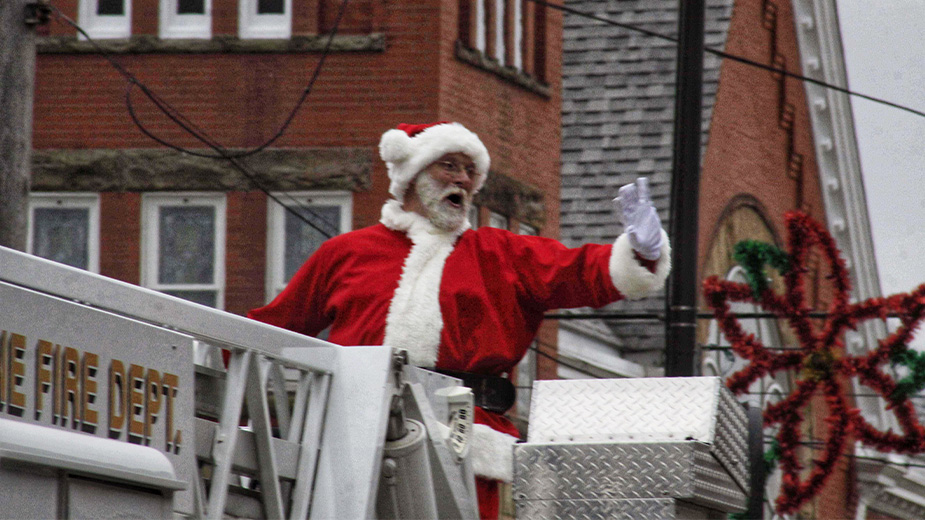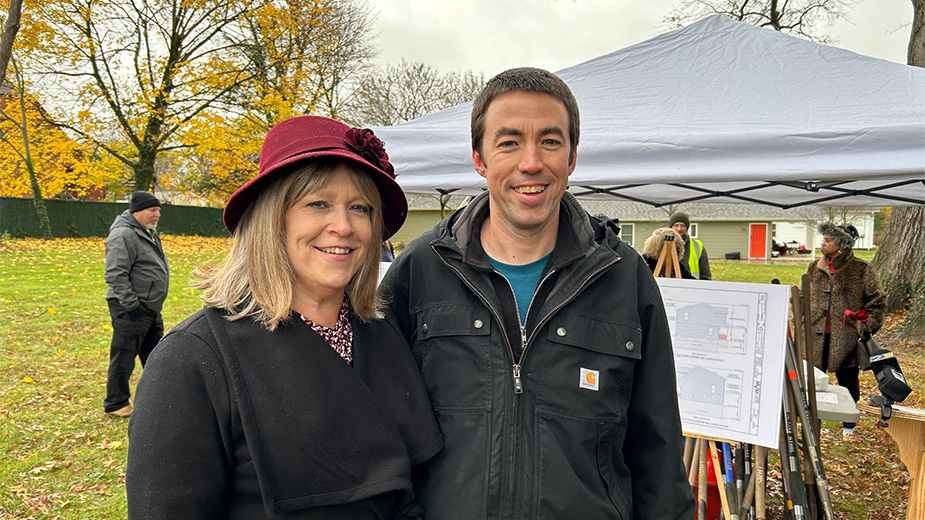Longtime Political Leader Harry Meshel Dead at 93
YOUNGSTOWN, Ohio — Harry Meshel, a Youngstown native whose political career began in 1964 when he was named administrative assistant to Mayor Anthony B. Flask, died Monday morning. He was 93. Funeral arrangements are pending.
Meshel won elective office in 1970 as a Democrat for a seat in the Ohio Senate. He served until 1993, rising to president of the Senate. Later he was elected chairman of the Ohio Democratic Party.
Meshel remained active in civic affairs until a few months ago. The last office he held was member of the Youngstown State University Board of Trustees.
In a statement, YSU called Meshel “an ardent advocate for the university for decades. As a state senator, he worked to bring millions of dollars to expand and enhance the campus. As a philanthropist, he created several endowed scholarships that have helped dozens of students pursue their educational goals at YSU. And as a member of the YSU Board of Trustees, he was a thoughtful, vocal supporter for students.”
Among those offering condolences were state Sen. Joe Schiavoni and Ohio Senate Minority Leader Kenny Yuko, both Democrats. Said Yuko: “Harry Meshel was a great guy and a legend in Ohio Politics. I will always remember his warm, dynamic personality and his dedication to public service.”
Schiavoni called Meshel “a true champion for the underdog. People use that slogan all the time, but he lived it and I’m so grateful that I had the opportunity to learn from watching him,” he said. “Harry Meshel treated people with respect no matter who they were or where they came from. The working people of Ohio lost a true friend and advocate today.”
In a story published by The Business Journal in January 2015, when Meshel was 90, the man who spent some 20 hours interviewing Meshel on video for the oral history archive at YSU, retired history professor Hugh Earnhart, characterized Meshel’s commitment to public service.
“When you look at his life,” Earnhart said, “it’s been all about helping those who couldn’t help themselves. He’s had the attitude, ‘The rich’ll take care of themselves. It’s the poor that need help.’ ”
Added Scott Schulick, a former president of the YSU trustees, “I can’t think of anyone whose life work has had more impact on Youngstown and the Mahoning Valley, especially Youngstown. We all owe Harry Meshel for his unwavering commitment to the Mahoning Valley.”
Through his work in the Ohio Senate, the funds Meshel directed to education in the Mahoning Valley and in support of economic development, recreation and social services today would approach $500 million, adjusted for inflation, Schulick estimated, including $150 million for YSU.
It’s quite likely that Meshel accomplished more, was involved in more and traveled more widely, to benefit this Valley than almost anyone else in its history.
On behalf of establishing or strengthening Ohio companies’ commercial ties in Asia, Meshel visited China five times, Japan four, Taiwan three and Korea once.
As a Seabee during World War II, Meshel served nearly a year in New Guinea before taking part in the first wave of U.S. forces to retake the Philippine Islands (where he learned to speak Tagalog and won two Bronze Stars in the Battle of Leyte Gulf in 1944).
In addition to Greek (“I learned to speak Greek before I learned English,” he said), Meshel is conversant in Italian, Spanish and Serbian. His late wife’s parents were Serbian immigrants.
As a state senator, he visited Nigeria to help open the first Ohio trade office there (since closed), Egypt five times (where he met longtime strongman Hosni Mubarek) and Israel five times.
On business or pleasure, Meshel has been “in almost every country in Europe,” Colombia in South America and Aruba just off its northern coast.
Meshel, the son of Greek immigrants born in Crete, was born here June 13, 1924, and grew up on the east side of Youngstown, one of six children.
He’s still “frosted [that] my last name [Michelakis] was misspelled on my birth certificate, my mother’s maiden name [Markakis] too,” as he produced a copy of the document.
Meshel grew up during tough times in a tough neighborhood. “You didn’t take any nonsense from anybody,” he said.
Boxing, not baseball, football or basketball, was the favorite sport of the boys he played with. “Everybody on my street was a boxer. We all had gloves,” he remembered.
It was the root of his love of the sport and in the Ohio Senate he sponsored legislation that created the Ohio Boxing Commission, which later became the Ohio Athletic Commission. On a visit to Israel, as a member of the International Boxing Council, he helped put on an exhibition match in Nazareth.
He grew up in The Great Depression, attending the McGuffey and Madison schools before entering East High, graduating in 1941. In grade school, he took Greek classes after the last bell and was an altar boy six years. That included being tonsured. And he met the Greek Orthodox archbishop for North and South America who went on to become the patriarch of Constantinople (Istanbul).
Young Harry used a magnet to scavenge for metal that could be recycled, the proceeds of which helped to support his family.
When World War II broke out, Meshel and his boyhood friends wanted to enlist in the Marines and drove to Akron. (Youngstown lacked a Marine Corps recruiting station.) The Marines were oversubscribed, they learned, so they volunteered for the Naval Construction Battalion, better known as the Seabees. He did undergo Marine Corps boot camp before transferring to the Navy.
After his discharge in 1946, Meshel used the G.I. Bill to enroll in Youngstown College, graduating with honors in three years.
Using what was left of his G.I. Bill benefits, he went on to earn his master’s degree in urban land economics at Columbia University. There he sat in a finance class with Warren E. Buffett, today chairman of Berkshire Hathaway Inc. Meshel graduated in 1950 and returned home.
While attending Youngstown, Meshel had worked in the open hearth of the Ohio Works of U.S. Steel Corp. The steelmaker’s need for labor allowed him a flexible schedule so he could work 30 to 40 hours a week, study hard and be involved in extracurricular activities.
Before he was elected to the state Senate in 1970, Meshel twice ran for county commissioner and lost. He became Mayor Flask’s administrative assistant in 1964 and served as urban renewal director in 1969, Flask’s sixth and last year in office.
Meshel’s work ethic, instilled in him as a boy, was strengthened and refined as he grew up. He told how he stayed up to read every significant bill introduced in the Senate, and paid even closer attention when he was majority leader (the Democrats held a one-vote margin) in 1983 and 1984.
He knew what was in the bills and was prepared to support others in their goals in return for their support of his.
Hard work and brooking no nonsense are only two ingredients of success in politics, business or education. Meshel, with his gregarious and outgoing personality, greeted people with warmth and friendliness, was quick with a quip or witticism, and expected those he dealt with to be forthright and honest. As a man of his word, he expected others to be people of their word, regardless of party and whether they agreed or disagreed with him.
Of his years in the Senate, whether in the minority or the two year as majority leader, Meshel turned Republican senators into friends and was proud to say, “Some of my best friends were Republican governors,” including James A. Rhodes, the only man to serve 16 years as the state’s top executive.
Meshel didn’t hesitate to confront the Democratic governors when he thought they were shortchanging the Mahoning Valley.
“I had a fight with every governor down there, Rhodes, [John] Gilligan, [Richard] Celeste,” Meshel said, firmness in his voice. The latter two were Democrats.
Copyright 2024 The Business Journal, Youngstown, Ohio.



